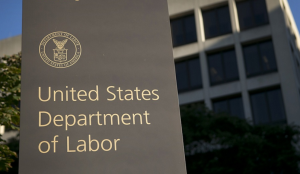 There’s a lot of debate about whether the DOL’s conflict of interest rule due to be released any day now is good or bad for investors and plan sponsors with most of the financial services industry against it. But the CEO of the largest provider of managed accounts, Chris Jones from Financial Engines, which is steeped in the defined contribution industry, thinks the rule could be very beneficial and that issues raised are just red herrings.
There’s a lot of debate about whether the DOL’s conflict of interest rule due to be released any day now is good or bad for investors and plan sponsors with most of the financial services industry against it. But the CEO of the largest provider of managed accounts, Chris Jones from Financial Engines, which is steeped in the defined contribution industry, thinks the rule could be very beneficial and that issues raised are just red herrings.
The DOL rule is intended to weed out conflicts of interest between an advisor and their clients in part by requiring them to act as a fiduciary rather which is fee based rather than the suitability standard which is commissioned based. Fiduciaries get paid the same no matter what investment they recommend – commissions can vary.
Though the financial service industry supports the principle in the new rule, the argument concerns the execution as explained by Bob Reynolds, CEO of the parent company of Empower-Retirement with seven million DC participants. His concern is that the rule would actually limit access to tens of millions of investors to routine advice and prevent DC service providers from presenting advice and options to businesses with fewer than 100 employees.
Financial Engines CEO Chris Jones counters that advisors and providers will find innovative and less costly ways to work with smaller accounts and actually force change which will end of being beneficial. In fact, LPL, the largest independent broker dealer, has already cut pricing for smaller accounts and Edward Jones is looking at a similar program. The use of robo advisors or at least robo advice will also step in to fill the void.
What does this mean for sponsors of defined contribution (DC) plans like 401ks and why should they care? More and more advisors are acting as co-fiduciaries on DC plans – the rule will accelerate that trend and force those that will not to partner with third parties who will. But the DOL rule will also force advisors to act as fiduciaries on IRA rollovers. The result may be that less money rolls out of DC plans as people retire or leave as fewer advisors will be willing to act as fiduciaries on IRAs. Though in the short term, fewer people will have access to advice, especially those with smaller accounts, long term as new solutions are crafted, removing conflicts where an advisor gets paid more by recommending a rollover or a costly annuity, might end up helping. And by keeping their money in their 401k plan, participants will get the guidance and oversight afforded to other plan participants.
See what others are saying about this topic:
[divider]
https://www.benefitspro.com/2016/03/25/on-eve-of-fiduciary-rule-financial-engines-sees-op?page_all=1
https://www.wsj.com/articles/iras-have-a-regulatory-headache-coming-1459108346


